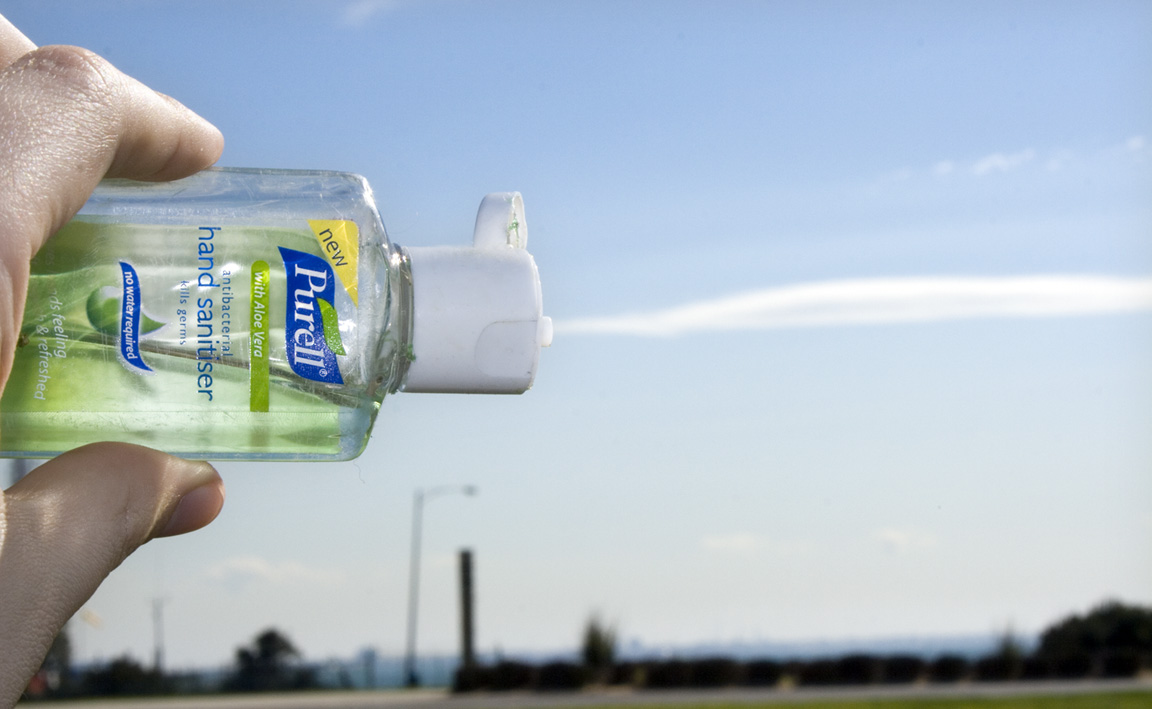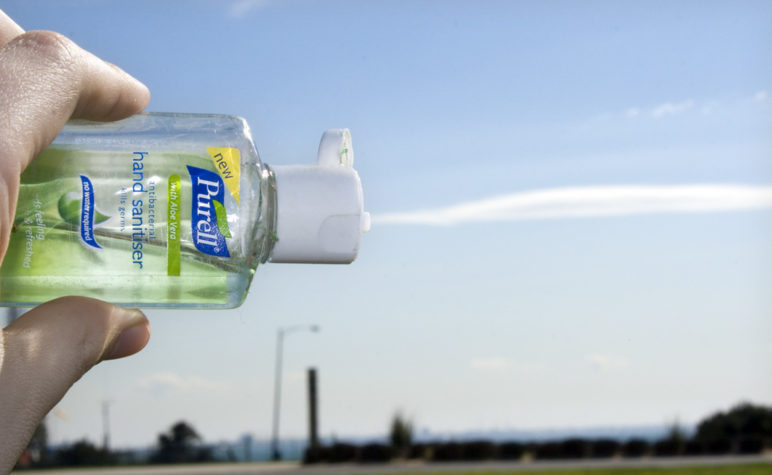What does hand sanitizer have to do with election results? What about a particularly stinky polling booth? “Not much,” you might think. But, it turns out that experiencing disgust (by being reminded about all those yucky germs that hand sanitizer is meant to kill, for example) might actually shift people’s political mood to the right.
A recent experiment conducted by a Cornell grad student and David Pizarro, Cornell professor of psychology, seems to show that “subtle cues [triggering feelings] about disgust and cleanliness can affect social and political judgments.”
Here’s how one of the study’s authors describes the experiment in a New York Times op-ed:
Participants who were randomly positioned in front of a hand sanitizer gave more conservative responses to a survey about their moral, social and fiscal attitudes than those individuals assigned to complete the questionnaire at the other end of the hallway.
In another experiment one of us (Dr. Pizarro) was involved in, a foul ambient smell—emitted, unbeknownst to test subjects, by a novelty spray—caused people answering a questionnaire to report more negative attitudes toward gay men than did people who responded in the absence of the stench. Apparently, the slightest signal that germs might be present is enough to shift political attitudes toward the right.
This research expands on findings from a long history of psychological studies. For example, studies have shown that people who are feeling disgust become harsher in their judgments of moral offenses and offenders. In other words, a bad smell in the room makes people express greater disapproval of a thief or even a small lie on a resume.
A theory to explain this phenomenon takes us way back in time. According to the study’s author: “One possibility is that early humans were endangered by contact with outside clans that carried diseases for which they had not developed immunity. Reacting with disgust toward members of groups seen as foreign, strange or norm-violating might have functioned as a behavioral immune system.”
And consistent with this theory, researchers at the University of British Columbia have shown that college students who see themselves as particularly vulnerable to disease (no extreme hypochondriacs, clean freaks, or slobs, but ordinary young people) tend to report more xenophobic attitudes.
Recent data collected by Dr. Pizarro has also shown that political conservatives on average report being more easily disgusted than liberals.
Trying to associate political opponents with disgusting words, ideas or images is nothing new, but the tactics have typically been far from subtle. So, what if a bad smell at a political rally or, better yet, a wide-spread flu epidemic around election day packed just as powerful a punch? In New York’s Republican gubernatorial primary earlier this year, candidate Carl Paladino mailed out thousands of campaign flyers infused with the smell of rotting garbage. An expensive gimmick. But, he “steamrolled Rick Lazio in the primary, 62 percent to 38 percent.”
It’s hard to say whether the smelly direct mail piece had anything to do with the victory. It’s also hard to say what role disgust plays in the grand scheme of things when it comes to political behavior or enduring political attitudes (what makes us conservative or liberal, anyway?). Matthew Yglesias sums it up perfectly: “I think it remains to be seen how these kind of dynamics play into macro-scale political phenomena, but suffice it to say that people aren’t making up their minds about political issues based purely on judicious consideration of the evidence.”










Joe Brewer
A very important article about the importance of disgust in politics. The interested reader can learn more about this important topic here:Why You Should Care About the Psychology of DisgustEnjoy!
civiletti
I’m not so sure. I often become thoroughly disgusted by what conservatives do, how they look, and how they sound. I don’t this shifts me to the political right.